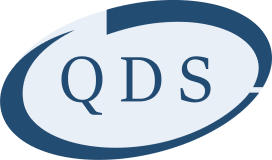Office apps and the files you create with them are accessible wherever there’s an internet connection, but that is actually the bare minimum that O365 offers. If you go for either the Premium or Essentials bundle, you’ll gain access to communications and collaboration apps that you can use to increase your organization’s productivity. Here are some of the specific ways you can do this:
Build an engaging intranet using SharePoint
Unlike the internet, which is a megalithic network spanning the entire world, an intranet is basically a private network built for your employees’ exclusive use. It began as a repository for basic company information, then it evolved into a document management system, an HR portal (where staff can file leaves of absence), a platform for knowledge-sharing and discussion forums, and a social media platform where users are both consumers and pushers of company-centric content.
If you use Microsoft Word and Excel to create work files, SharePoint is the platform where your team can keep and share such files. Build forums that bolster collaboration, information libraries that help staff leverage collective knowledge, and message boards that inform and invite staff to engage with the goings-on inside the company.
Enjoy continuous collaboration with Teams
Microsoft brings collaborations up a notch with Teams, a tool that allows you to build shared workspaces. In a Teams workspace, each team member can share files as well as comment on and work on one another’s files. Imagine doing all of that via email — you’ll most likely weave a nightmarish tangle out of multiple threads and attachments.
Additionally, Teams has communications facilities such as web conferencing, group chat, and live online meetings. Since Teams can be used on desktops, laptops, and mobile devices, workers can share information and connect frontline staff such as factory machine operators and sales clerks.
Coordinate your efforts with Planner
If Teams is O365’s communications hub, then Planner is its Kanban board — a project workflow visualization tool that lets you categorize tasks according to their progress status. A physical Kanban board is limited by the size of sticky notes used, but with Planner, you can assign tasks to team members, attach relevant files to them, and discuss tasks without leaving the app.
Automate tasks with Flow
There are tasks that promote critical thinking, but there are also tasks that are tedious and repetitive. An example of such a task is preparing an income statement. This usually involves emailing a finalized income statement to your superiors and archiving it. Automating the archive step alone would significantly ease this workflow.
With Flow, you can easily create detailed workflows that accomplish tasks automatically once you fulfill certain triggers. You can also make different apps “talk” with one another (e.g., have new OneDrive files be copied to your Dropbox account), provided that integrations allow them to do so. Imagine not having to shift between so many apps anymore — this will save your staff plenty of time and mindspace to do more worthwhile tasks that add more value to your company.
Let your staff step up from being mere individual Office suite users to being members of synergistic teams! Contact us to learn more about how you can squeeze every drop of value from your Office 365 subscription.

